Plot summary
One day Emil Sinclair, an eleven-year-old boy, returns from school and as nobody is at home he goes upstairs into his father's room where he steals sugared and dried figs out of his dad's chest of drawers. Although he has pangs of conscience and thinks a lot about his deed, he does not confess it to his father. Sinclair pretends to have bought the figs at the cake shop in Calw. That is why his father punishes him by taking him there; but before entering the shop, the boy tells that he did not get them there. At home he finally admits that he stole the figs. The book ends with the phrase: "Als ich im Bett lag, hatte ich die Gewissheit, dass er mir ganz und vollkommen verziehen habe – vollkommener als ich ihm." ("As I lay in bed I had the certainty that he had completely forgiven me - more completely than I had him.")
Hesse himself made a comment on his book in a letter to his sister Adele, in which he stated that the way described in Kinderseele was one of extremely straight psychology and love of truth.

Hermann Karl Hesse was a German-Swiss poet, novelist, and painter. His best-known works include Demian, Steppenwolf, Siddhartha, and The Glass Bead Game, each of which explores an individual's search for authenticity, self-knowledge and spirituality. In 1946, he received the Nobel Prize in Literature.
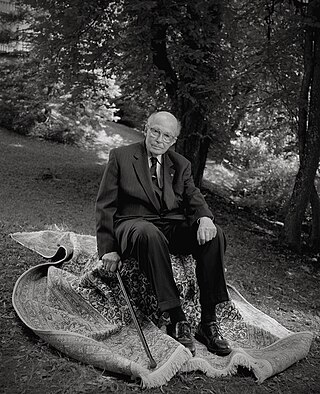
Otto von Habsburg was the last crown prince of Austria-Hungary from 1916 until the dissolution of the empire in November 1918. In 1922, he became the pretender to the former thrones, head of the House of Habsburg-Lorraine, and sovereign of the Order of the Golden Fleece upon the death of his father. He resigned as Sovereign of the Golden Fleece in 2000 and as head of the Imperial House in 2007.
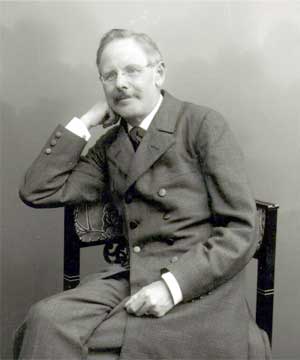
Peter Rosegger was an Austrian writer and poet from Krieglach in the province of Styria. He was a son of a mountain farmer and grew up in the woodlands and mountains of Alpl. Rosegger went on to become a most prolific poet and author as well as an insightful teacher and visionary.

Emil Erich Kästner was a German writer, poet, screenwriter and satirist, known primarily for his humorous, socially astute poems and for children's books including Emil and the Detectives. He received the international Hans Christian Andersen Medal in 1960 for his autobiography Als ich ein kleiner Junge war. He was nominated for the Nobel Prize in Literature in six separate years.

Siddhartha: An Indian novel is a 1922 novel by Hermann Hesse that deals with the spiritual journey of self-discovery of a man named Siddhartha during the time of the Gautama Buddha. The book, Hesse's ninth novel, was written in German, in a simple, lyrical style. It was published in the United States in 1951 and became influential during the 1960s. Hesse dedicated the first part of it to the French writer Romain Rolland and the second part to Wilhelm Gundert, his cousin.

The Glass Bead Game is the last full-length novel by the German author Hermann Hesse. It was begun in 1931 in Switzerland, where it was published in 1943 after being rejected for publication in Germany due to Hesse's anti-Fascist views.

Holger Börner was a German politician of the SPD.
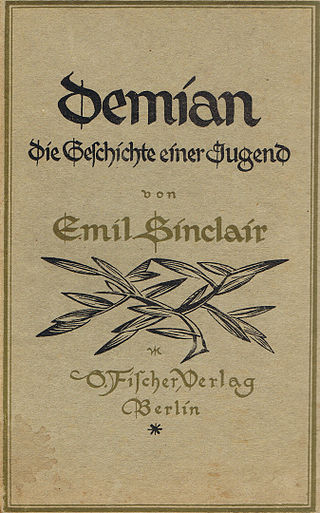
Demian: The Story of Emil Sinclair's Youth is a bildungsroman by Hermann Hesse, first published in 1919; a prologue was added in 1960. Demian was first published under the pseudonym "Emil Sinclair", the name of the narrator of the story, but Hesse was later revealed to be the author; the tenth edition was the first to bear his name.

Manuel Teixeira Gomes, GCSE was a Portuguese politician and writer who served as the seventh president of Portugal between 5 October 1923 and 11 December 1925.
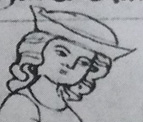
Louis IV the Saint, a member of the Ludovingian dynasty, was Landgrave of Thuringia and Saxon Count palatine from 1217 until his death. He was the husband of Elizabeth of Hungary.
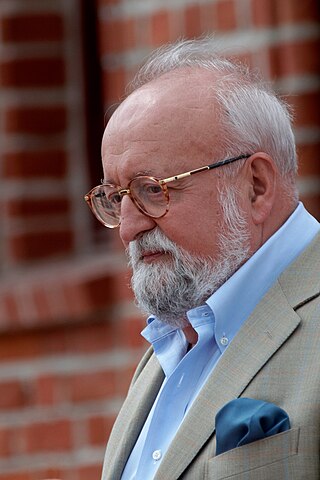
The Symphony No. 8 "Lieder der Vergänglichkeit" by Krzysztof Penderecki is a choral symphony in twelve relatively short movements set to 19th and early 20th-century German poems. The work was completed and premiered in 2005. The symphony has an approximate duration of 35 minutes. Penderecki revised the symphony in 2007 by adding a few more poem settings and the piece has expanded to around 50 minutes. Although given the designation Symphony No. 8, it was not actually the final symphony Penderecki completed before his death in March 2020; the Sixth Symphony, begun in 2008, was not completed until 2017.
Türkisch für Anfänger is a German television comedy-drama series, which premiered on 14 March 2006 on Das Erste. It was created by Bora Dağtekin and produced by Hoffmann & Voges Ent.
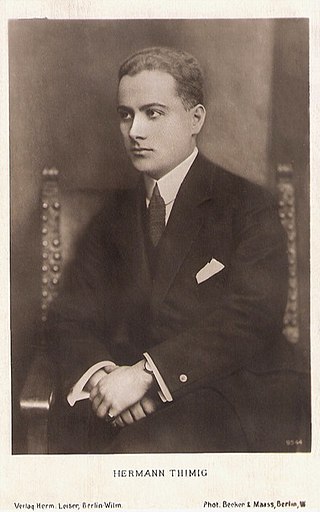
Hermann Thimig was an Austrian stage and film actor. He appeared in 102 films between 1916 and 1967.
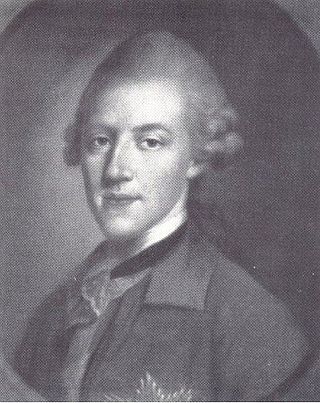
Frederick V Louis William Christian, Landgrave of Hesse-Homburg was from 1751 to his death landgrave of Hesse-Homburg.
Hermann Weber was a German historian and political scientist. He has been described as "the man who knew everything about the German Democratic Republic".
Morgen hör ich auf is a German television series that premiered on January 2, 2016 on ZDF.
Monika Adele Elisabeth Hunnius was a German-Baltic writer, one of the most famous German authors of the Baltic states in the 20th century.

Count Karl von Schlitz, in full: Karl Heinrich Wilhelm Hermann Ferdinand von Schlitz, genannt von Görtz was a German politician and Standesherr in the Grand Duchy of Hesse.
Johannes Woldemar Gelbke was a German composer, choir lieder, conductor and singer He became known especially in Germany for his song Horch! Die alten Eichen rauschen... ("Heimkehr"). He also worked as a composer, conductor, choirmaster and singer in the US, where he lived and worked from 1882.
Knulp is a short story by Hermann Hesse, published in 1915 by S. Fischer Verlag. The three stories are about a vagrant called Knulp. Hesse wrote these stories between 1907 and 1914 are among his “Garbersau” stories.














